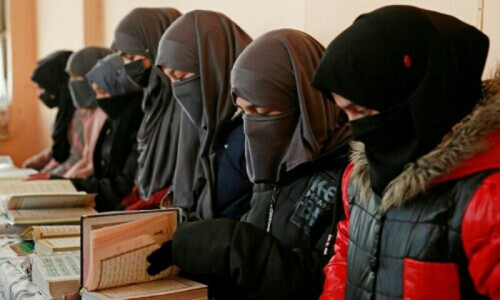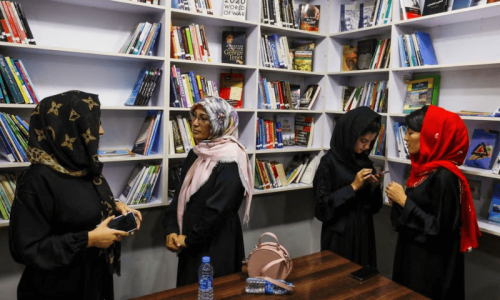KABUL: Taliban authorities in Kandahar province ordered female aid workers this week to stop work on a refugee project, according to an official letter, reinforcing rules against women working despite exemptions sought by some organisations.
The letter between departments of the ministry for refugees in Kandahar, the Taliban’s historical heartland, said aid agencies had been in violation of the orders in work related to refugees in Spin Boldak, a town near the border with Pakistan.
The letter was confirmed by a spokesman for the provincial governor.
“All partner organisations that are working with the Department of Refugees and Repatriation of Spin Boldak … should ask their female colleagues not to come to their work and stay at home until further notice,” the letter said.
A spokesperson for the United Nations humanitarian coordination office said the body was aware of the instruction and seeking clarity.
The letter underscored the uncertainty of the operating environment in Afghanistan for aid agencies who say they intend to stay and deliver aid during a humanitarian crisis, but seek exemptions to let female staff work, to reach female beneficiaries and avoid breaching UN charter principles.
The Taliban administration signalled in January it would work on a set of written guidelines that could allow aid groups to operate with female staff in some cases, but it has not yet done so.
“As you all know, according to the decree of the supreme leader, the female employees of the organisations cannot go to work until further notice … unfortunately, some partner organisations have asked their female employees to come to work in flagrant violation,” the letter added, referring to Haibatullah Akhundzada, the supreme spiritual leader who is based in Kandahar.
The Norwegian Refugee Council, an international NGO, said in May it had received exemptions for many of its operations in Kandahar and was resuming work with female staff.
The Taliban’s restrictions on women aid workers and access to education have been widely criticised by the international community. Diplomats have said the path toward formal recognition of the Taliban’s government is limited until it reverses course.
The Taliban, which took power after the United States pulled out troops supporting an elected government in 2021, say they respect women’s rights in accordance with their interpretation of Islamic law and local custom.
Published in Dawn, June 24th, 2023













































Dear visitor, the comments section is undergoing an overhaul and will return soon.